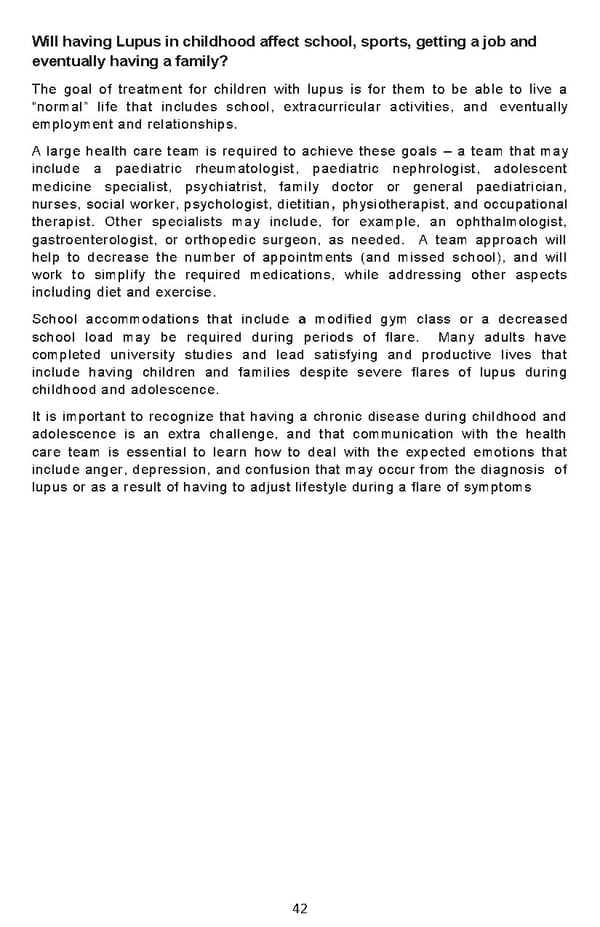Will having Lupus in childhood affect school, sports, getting a job and eventually having a family? The goal of treatment for children with lupus is for them to be able to live a “normal” life that includes school, extracurricular activities, and eventually employment and relationships. A large health care team is required to achieve these goals – a team that may include a paediatric rheumatologist, paediatric nephrologist, adolescent medicine specialist, psychiatrist, family doctor or general paediatrician, nurses, social worker, psychologist, dietitian, physiotherapist, and occupational therapist. Other specialists may include, for example, an ophthalmologist, gastroenterologist, or orthopedic surgeon, as needed. A team approach will help to decrease the number of appointments (and missed school), and will work to simplify the required medications, while addressing other aspects including diet and exercise. School accommodations that include a modified gym class or a decreased school load may be required during periods of flare. Many adults have completed university studies and lead satisfying and productive lives that include having children and families despite severe flares of lupus during childhood and adolescence. It is important to recognize that having a chronic disease during childhood and adolescence is an extra challenge, and that communication with the health care team is essential to learn how to deal with the expected emotions that include anger, depression, and confusion that may occur from the diagnosis of lupus or as a result of having to adjust lifestyle during a flare of symptoms 42
 Living Well With Lupus Facts Booklet Page 41 Page 43
Living Well With Lupus Facts Booklet Page 41 Page 43